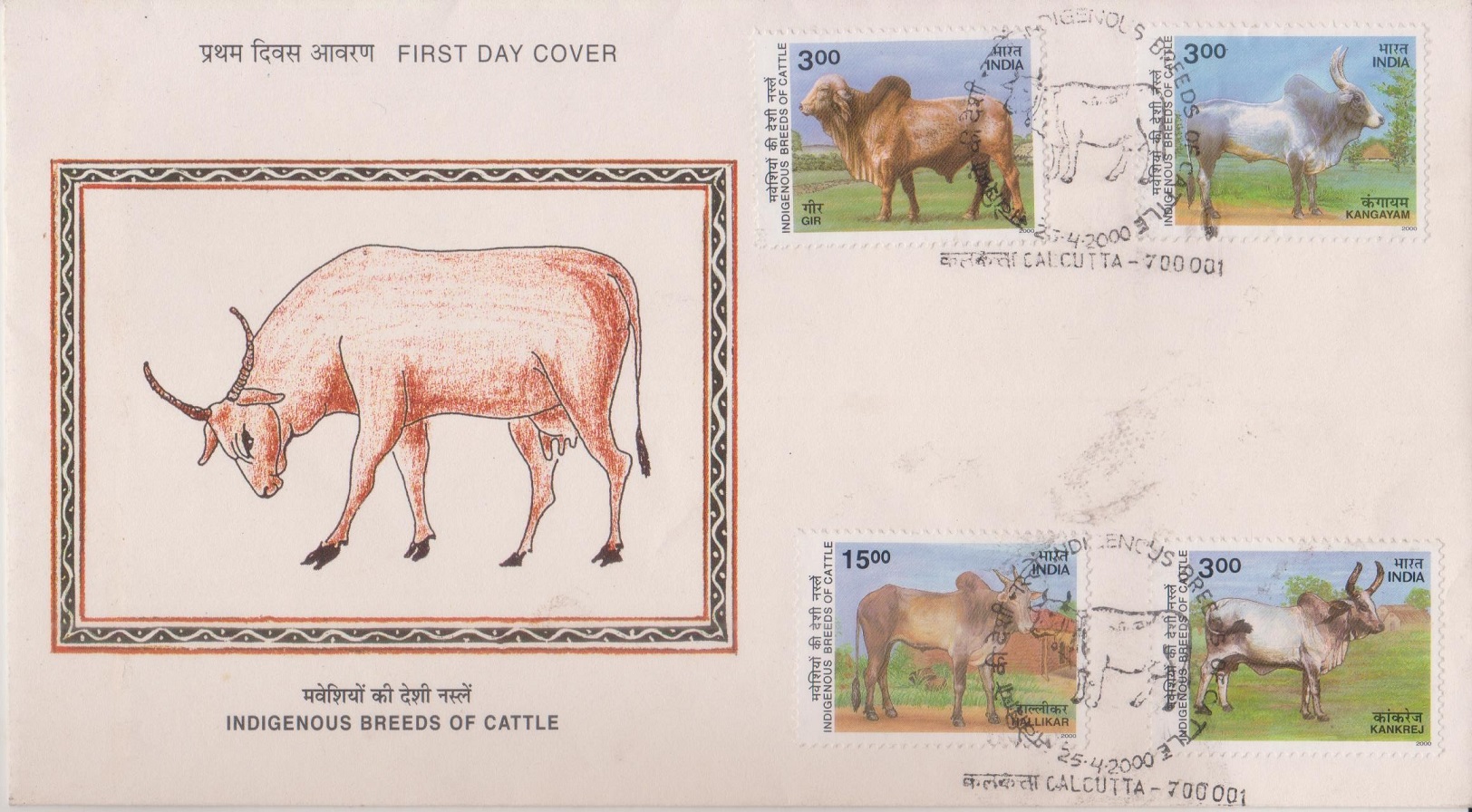
Indigenous Breeds of Cattle
Complete Set of 4 nos of postage stamps on the 4 Indigenous cattle breeds of India: Gyr, Kankrej, Kangeyam and Hallikar :
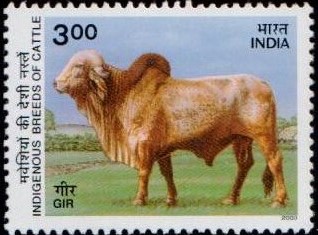
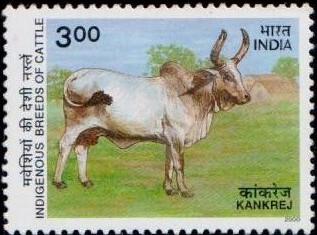

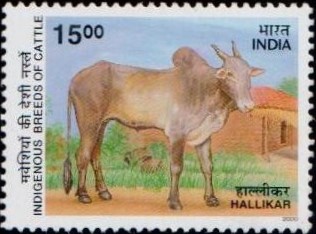
 Issued by India
Issued by India
Issued on Apr 25, 2000
Issued for : India has the world’s most significant cattle diversity with 26 well-defined indigenous distinctly Indian breeds of cattle which are hardy, resistant to disease and can withstand harsh ecological conditions. The Department of Posts issues a set of four stamps on Indian breeds of cattle to focus attention towards conservation and utilisation of this precious heritage.
Credits :
Stamp : Transparencies by S.T. Bhaskaran
FDC : Dev Mukharji
Cancellation : Alka Sharma
Type : Stamps, Mint condition
Colour : Four Colour
Denomination : 300, 300, 300, 1500 Paise
Overall size : 2.9 x 3.9 Cms.
Printing size : 2.55 x 3.55 Cms.
Perforation : 13.5 x 13.5
Paper : Matt Chromo
Stamps Printed : 0.8 Million Each
Number per issue sheet : 40
Printing Process : Photo Offset
Printer : Calcutta Security Printers Ltd.
About :
- India is known as one of the sites of the earliest domestication of livestock. The world’s most significant cattle diversity is also found here. Various distinct breeds of cattle have evolved since time immemorial and are reared for several purposes like milk, draught, social status and religious rituals. Some of the breeds were developed for more than one purpose. All the indigenous breeds have certain common characteristics: they are hardy, resistant to disease, and can withstand harsh ecological conditions. The exact population figures of these Indian cattle breeds is not known since the livestock censuses are being conducted species-wise rather than breed-wise. However, about 26 breeds have been identified as distinctly Indian, though there may be other localised breeds yet to be described. Some of the breeds have been subjected to genetic erosion and decline in their population, because of changing agricultural scenario, increased mechanised farming, shrinking areas under grazing lands and indiscriminate use of imported breeds for cross-breeding in the country.
- Arid zones seem to facilitate the development of breeds. The varieties in dry areas have developed well and thrived, like the Gir cattle in Gujarat and the Kangayam breed in Tamil Nadu’s Periyar district. On the other hand, the breeds in heavy-rainfall areas are small in size and poor in breed qualities. The Dangi breed from the Dang hills of Gujarat is one such example. The breeds from hot areas develop large dewlaps that help them dissipate body heat better.
- This set of four stamps focuses attention towards conservation and utilisation of the domesticated animal diversity of India, which is a precious heritage we cannot afford to lose. Out of the four breeds of cattle depicted, two (Gir and Kankrej) are common to Western India and the other two (Kangayam and Hallikar) are from South India. Originally from the Gir forests in Gujarat, the Gir is medium sized with typically curved horns and long, pendulous ears and is the most popular dairy breed of India. Kankrej from Northern Gujarat is a powerful draught animal and a good milker with lyre-shaped horns. Kangayam is a moderate sized, powerful draught animal breed with a prominent hump and is found in the arid tracts of Tamil Nadu. The Hallikar belongs to Karnataka and is a compact bodied draught breed with a narrow bulging forehead and a pair of sweeping, concave horns.
- Text : Based on inputs from Dr. D.K. Singh, S.T. Bhaskaran and Dr. O.S. Tomer.



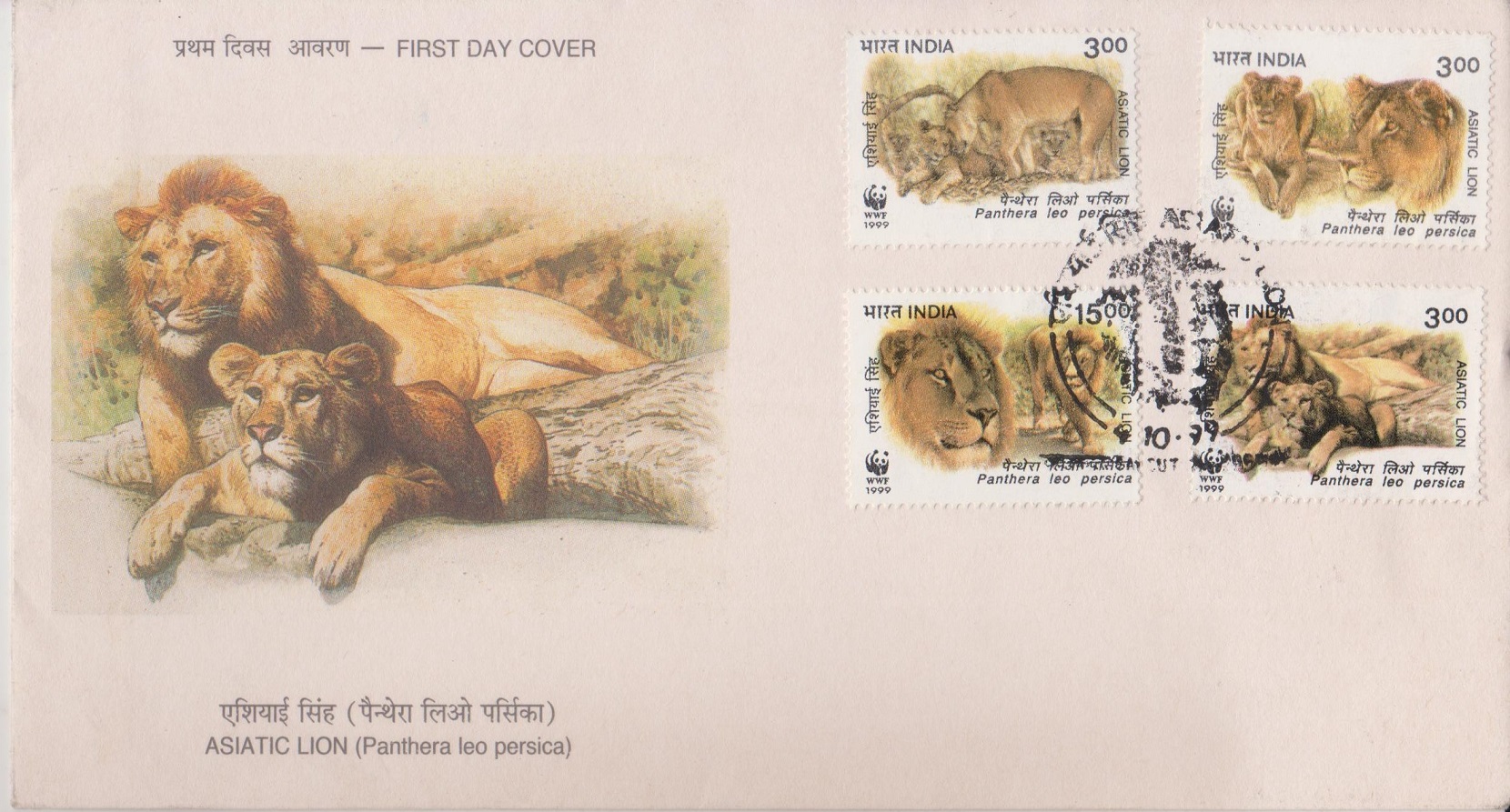

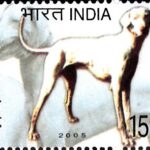
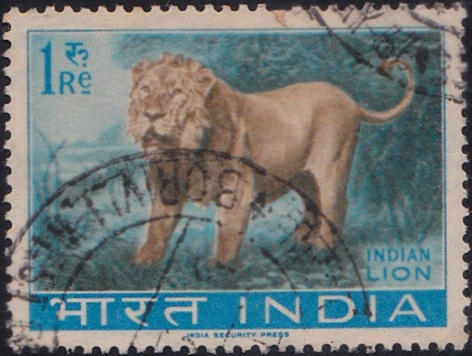

From where can we purchase these Stamps
क्या हम इन्हें खरीद सकते हैं?